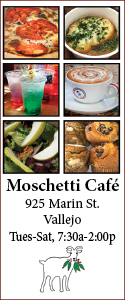By Chef K. Marie Paulk
I think it is pretty funny that if you look up the definition of a lemon in a dictionary, you will find two definitions. One will read: “an edible citrus fruit;” and the other will read: “(slang) something that is manufactured defective or imperfect.” Nothing could be further from the truth.
I love lemons! They are so versatile, they can be used in just about everything: baking, cooking a chicken, part of a marinade for your proteins—if you use it on fish, add just before you start to cook, since lemon acid starts the cooking process. I could not begin to count the endless vinaigrettes that you can create using lemons. You can even use them to make a simple centerpiece; nothing is prettier than a bowl of lemons in a cobalt blue bowl. Lemons can take the smell of fish off your hands, freshen up your garbage disposal, or add some kick to a tall glass of water. And don’t forget all the garnishes you can make using a lemon to give a dish a very professional look. The best part is that you can use the entire lemon, the skin and the juice, no waste.
There are 3 types of lemons: rough, common and sweet. Rough lemons are a variety that has an orange-yellow, rough skin that is used as a rootstock of the cultivation of other citrus fruits. The common varieties are the ones we buy at our local market. Eureka lemons are found in the summer and Lisbon variety in the fall. Then my all-time favorite is the sweet Meyer lemons, which have a thin skin and are less acidic and sour. The Meyer is thought to be a cross between a Eureka, Lisbons and a mandarin orange.
When you buy lemons, you obviously should choose the freshest, which should have an oily skin and be smooth and firm to the touch. The thinner the skin, the more juice it should yield. When I am going to make something that requires the zest, I choose a thicker skin lemon, which should have more flavor. If you are going to use the lemon in few days you should keep them at room temperature to yield more juice, but for a longer shelf life, refrigeration will keep them for up to four weeks.
Something very important to remember about zest: always wash the lemon! Most purchased lemons are coasted with water-soluble wax for protection during shipping. Believe it or not, even the organic ones may have a coating. They may not have pesticides, but they may have been coated. Another important thing to remember is that only zest the skin, try not to get the pith (the white under the skin), which can add an unwanted bitter taste to your recipe. Also, zest before you juice! It is really hard to zest a cut lemon. Depending on what form you need, the micro plane is the best tool for finely grated zest. If you want to intensify the lemon flavor in any dessert, the best thing to do is to add finely grated lemon zest rather than more juice. Zest adds flavor, but it won’t affect the liquid/solid balance of the recipe. Also, remember to zest over a piece of parchment or wax paper to make it easier to pick up the fine pieces.
The best way to get the best yield from your lemons, before you slice roll it on the counter beneath the palm of your hand or drop it in hot water just before juicing. One large lemon yields 1/4 cup of juice, you’ll get 1 cup of juice from 4 large lemons. The juice will keep for about 1 week in the refrigerator or you can freeze. Use those ice cube trays you never use, they will hold about 2 tablespoons per cube, after they freeze store them in a resealable plastic bag.
It best to use nonreactive pots and utensils. Avoid cast iron and aluminum, since lemon juice can react with these metals, causing an unwanted flavor and color change.
My top 3 uses for lemons would have to be: lemon bars, lemon curd and preserved lemons. Lemon curd will keep for about a month in the refrigerator. Preserved Lemons take time to make, but you can use them in many dishes and they will keep for about nine months in an unopened jar. You just need to start a month before to give the lemons time to cure. Lemon bars will keep just a few days but let’s face it, that’s all time you need if you love lemon bars as much as I do. I would love to share all these recipes. My favorite lemon bar recipe is lemon bars on brown butter shortbread, simply yummy. So, if you would like any of these recipes, you will find them on the Local Happenings website, but if you don’t have time and find yourself with an abundance of lemons, you heard it before—“Make Lemonade.”














































